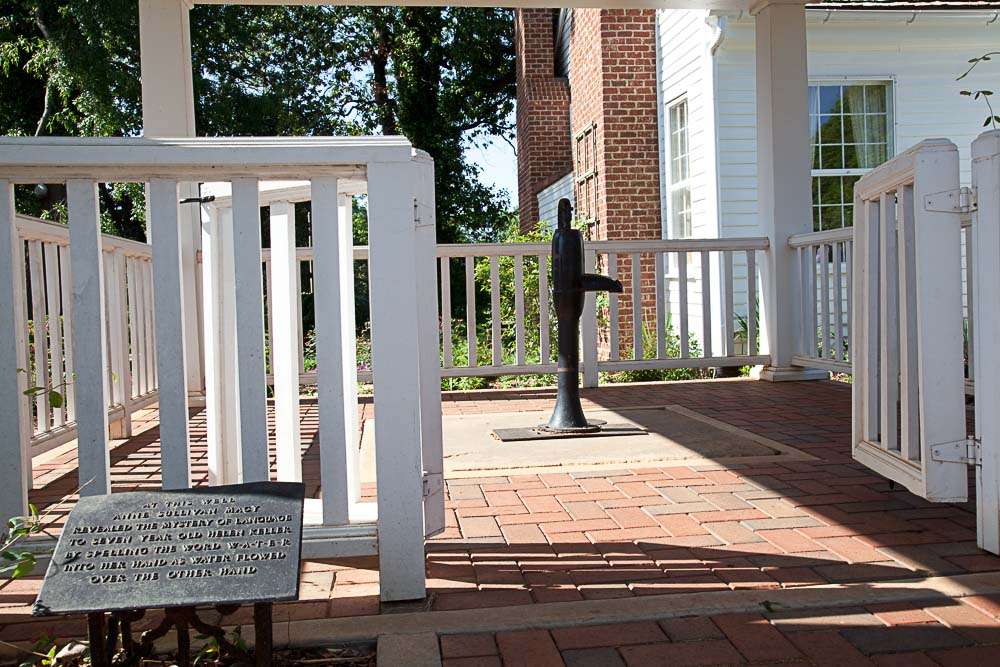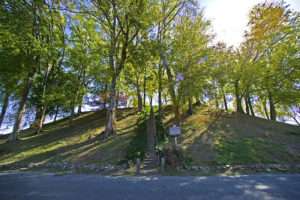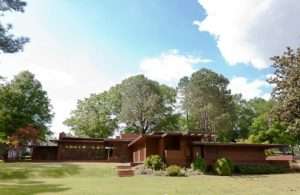Trapped in a dark, soundless world after a childhood illness left her blind and deaf, Helen Keller saw the potential in her own mind and went on to read French, German, Greek, and Latin in Braille. She entered Radcliffe College at 20, wrote 11 books, numerous articles, and lectured in 39 countries on five different continents. She also inspired two Oscar-winning movies and received the Presidential Medal of Freedom, the highest honor an American civilian can receive.
At her birthplace and childhood home known as “Ivy Green” in Tuscumbia, Alabama, visitors can see the Keller family’s original furnishings, hundreds of personal mementos, gifts, and books from a lifetime of travels. Thousands gather for the week-long Helen Keller Festival each June, and the epic drama “The Miracle Worker” is performed at the home each June and July.
Admission Charged
Hours: Monday-Saturday 8:30 AM-4 PM, Sunday 1-4 PM.
Address: 300 W. North Commons, Tuscumbia, AL 35674
Phone: 256-383-4066
Built in 1820 only one year after Alabama became the 22nd State of the Union, Ivy Green is a simple, white clapboard home design in typical Southern architecture. The main house is of Virginia cottage construction, with four large rooms on the first floor bisected by a wide hall. Each room boasts an individual fireplace. Upstairs are three rooms connected by a hall. Having survived untouched through the ravages of the Civil War, Ivy Green is maintained to the smallest detail in its original state.
Since 1954 Helen Keller’s birthplace has been a permanent shrine to the “miracle” that occurred in a blind and deaf seven-year old girl’s life. At that time Ivy Green was placed on the National Register of Historic Places.





